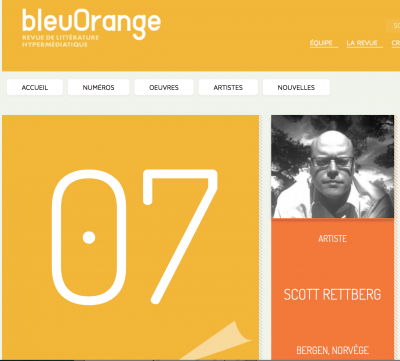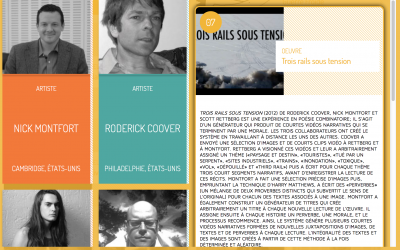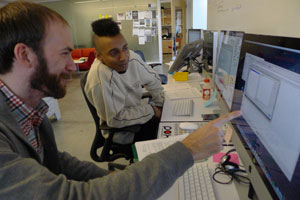Trois rails sous tension

Three Rails Live has been translated as “Trois rails sous tension” and published on Revue bleuOrange #7.
“Three Rails Live” — the combinatory database film I produced with Roderick Coover and Nick Montfort has been translated into French as “Trois rails sous tension” and published in a special translation issue of Revue bleuOrange. Huge thanks to Carolyne Ouellette and Jordand Tudisco for their translation, to Serge Bouchardon and Laetitia LeChatton for their voice acting, and to the editorial team at bleuOrange. Magnifique!




